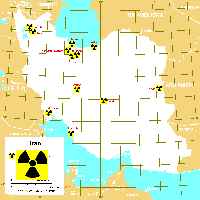Misguided people in America and Britain have recently apologized for slavery, but is any representative of Islam prepared to apologize for 14 centuries of it? Slavery is intrinsically a part of Islam and to deny it is to contradict Mohammed, the founder of Islam. FSM Contributing Editor Adrian Morgan takes us through Islam’s mind-boggling involvement with this heinous practice.
Should the Islamic World Apologize For Slavery? – Part Three (of 3)
By Adrian Morgan
The white slavery of the Barbary corsairs ended only when the perpetrators were subjected to the threat of the firepower of a military assault. Though xebecs no longer captured Western ships and their crews, slavery still continued. James Richardson (1809-1851) was a British traveler and diplomat. He
noted in 1850 that in Tripoli and Tunis, caravans were continually arriving with new black slaves for their Muslim masters. As he followed the slave routes southward, he saw numerous small piles of stones, which he was told were grave markers left by women slaves for their children who had died on the caravan journey.
Richardson would later discover in Zinder, Niger, that many of the black slaves transported to the Barbary states were themselves Muslim.
In "Narrative of a Mission to Central Africa" (Ch 12) he wrote: "I am very sorry to hear of the iniquitous manner in which slaves are captured for the supply of the north at this present time. It appears that, now all these populations are Muslims, it is difficult to get up the war-cry of "Kafers!" - "Infidels!" What is then done? The sultan of a province foments a quarrel with a town or village belonging to himself, and then goes out and carries off all the people into slavery."
Richardson also traveled to Morocco, which was ruled by Moulay Ismail's descendant, Moulay Abderrahmane (sultan from 1822 to 1859). Richardson wrote that in one particular year, 10,000 black slaves had been imported into Morocco, but the usual annual traffic was about half that number. He
wrote: "No Jew or Christian is permitted to buy or hold a slave in this country. Government possesses many slaves, and people hire them out by the day from the authorities. The ordinary price of a good slave is eighty dollars. Boys, at the age of nine or ten years, sell the best; female slaves do not fetch so much as male slaves, unless of extraordinary beauty."

In central and east Africa, the medical missionary David Livingstone (1813 - 1873) would witness at first hand the abuses of the Muslim slave trade. On his second journey to the interior, he encountered a Muslim slave caravan in Malawi, a region he described as where "Satan has his Seat". He wrote that "two of the women had been shot the day before for attempting to untie the thongs. One woman had her infant's brains knocked out because she could not carry her load and a man was dispatched with an axe because he had broken down with fatigue."

The Muslim slave trade in central and eastern Africa had gone on for centuries. A slave market in Zabid, Yemen, is depicted in a painting from 1237 (pictured). A hub of this trade would become based on the island of
Zanzibar, which in the 18th century had seen an increase in its traffic. By 1800, more than 8,000 African slaves annually passed through Zanzibar slave market, based at Stonetown.
One Muslim slave trader,
Tippu Tip (Hemedi bin Muhammad el Marjebi) was born in Zanzibar in 1837, himself the grandson of an African slave. He established a base west of Lake Tanganyika, helped by Africans of the Nyamwezi and Msiri tribes, and thence exported slaves to Stonetown for sale. In 1873, the British threatened to bombard Zanzibar, and its slave trade was officially ended. The Arab slave trade had been draining Africa since the 9th century.
Traditionally, Islam has never condemned slavery. As
Murray Gordon states of traditional Arab scholars; "No moral opprobrium has clung to slavery since it was sanctioned by the Koran and enjoyed an undisputed place in Arab society."
According to
Bernard Lewis, author of
Race and Slavery in the Middle East: "Black slaves were brought into the Islamic world by a number of routes - from West Africa across the Sahara to Morocco and Tunisia, from Chad across the desert to Libya, from East Africa down the Nile to Egypt, and across the Red Sea and Indian Ocean to Arabia and the Persian Gulf. Turkish slaves from the steppe-lands were marketed in Samarkand and other Muslim Central Asian cities and from there exported to Iran, the Fertile Crescent, and beyond. Caucasians, of increasing importance in the later centuries, were brought from the land bridge between the Black Sea and the Caspian and were marketed mainly in Aleppo and Mosul."
Slavery is advocated in the Koran. Though Mohammed states that freeing slaves gains merit, he made no prohibitions against acquiring slaves. Women and girl slaves could be gained as "booty" in raids. Sura 33, verse 50 states: "Prophet, we have made lawful for you.... the slave-girls whom God has given you as booty." These could be raped at will by Muslims who in no way contradicted the Koran - Suras 23:1 and 70:22 state that it is lawful to have sex with slave girls. The Hadiths are filled with references to slaves owned by Mohammed and his associates. In
one Hadith Mohammed intervened to reverse one man's emancipation of six slaves. By casting lots, Mohammed denied freedom to four of them.
With such a poor example set by the founder of Islam, it is no wonder that Muslim countries were slow to forbid slavery. The Ottoman Empire abolished slavery in stages, beginning in 1847, when trading in slaves was banned in the Persian Gulf. Women slaves were still sold in the Ottoman Empire as late as
1908. Slavery continued after the Ottoman Empire was crushed in 1924. Qatar did not abolish slavery until 1952. Yemen and Saudi Arabia abolished slavery in 1962, and Mauritania did not officially abolish slavery until 1980.
In 1990, an Islamic "declaration of human rights" was signed in
Cairo, even though "freedoms" are only allowed if they do not contradict Sharia law. Article 11 a of the declaration reads: "Human beings are born free, and no one has the right to enslave, humiliate, oppress or exploit them, and there can be no subjugation but to God the Most-High."
Despite this lame attempt to declare rights for all, Muslim slavery continued, following the tradition of Islam's founder.
Mauritania had practiced slavery for centuries, particularly when it was part of the empire of Moorish rulers such as Moulay Ismail. Declarations of Islamic human rights have had little influence here, where Arab elites still believe they have the right to enslave Africans.
The Atlantic slave trade exacted a high death toll, but in the West, male slaves were encouraged to reproduce. In the Islamic world, though Islam forbids castration, black male slaves were frequently subjected to this brutal operation. A. B. Wylde, a British consul in Egypt,
noted in the 1880s that there were 500 eunuchs in Cairo. He believed that 199 out of 200 people who were castrated did not survive, and suggested that the 500 Cairo eunuchs represented "100,000 Soudanese" who had been killed. Whyte was over-estimating the death-rate, but certainly more people subjected to the operation died than survived. Eunuchs could gain status in Muslim societies, but their rights to procreate had been denied. As late as
1903 the Ottoman ruling family owned 194 eunuchs, and 35 of these had positions of "seniority".
Islamic apologists make claims that Islam has no racism, even though Mohammed himself
said that an Ethiopian slave could have a head that "looks like a raisin". According to
Bernard Lewis (page 38) the Arab philosopher Ibn Khaldun (1332 - 1406) wrote: "The only people who accept slavery are the Negroes, owing to their low degree of humanity and their proximity to the animal stage."
Such attitudes still exist in Mauritania and also Sudan, where Arab elites enslave black people from the Dinka and the Shilluk tribes who live in southern Sudan. Since
1983 when the northern government engaged in a war with the south of Sudan, slavery cases proliferated.
Simon Deng had been a Shilluk child slave, abducted to live in northern Sudan by an Arab. In May 2006 he went on a fact-finding mission to southern Sudan. He said that "villages are still being burnt, women are still being raped, and people are being sold into slavery." Mr. Deng now lives as a US citizen in New York.
Another Sudanese-born black man who is now a US citizen is
Francis Bok. He came from a Catholic family in a Dinka village. In 1986, when aged seven, he was
abducted by Arabs from the north who decapitated adults at a local market and stole the children. For ten years Mr. Bok was a slave in a Muslim household - forced to convert to Islam - until he ran away. Some Dinka slaves who do not convert to Islam have had their
Achilles tendons cut.
In
2000, a UNICEF representative estimated that 5,000 to 10,000 children were still slaves in Sudan. The Dinka Committee in 2001 claimed that 14,000 children have been abducted since 1983. In Sudan, as elsewhere, child slaves are subjected to
cruel punishments.
In
February 2006 as part of the Sudanese government's peace deal with the south, initiated by the late John Garang with US assistance, 163 former slaves were repatriated back to the south. Not all slaves are children. One, Abuk Ater, was already a married adult when she was abducted by an Arab militia. She was also raped. For 20 years she endured slavery until being repatriated.
In Mauritania, though some black Moors own slaves,
racism is also involved in Muslim slavery. In
1987, a purge took place on black officers in the police and army. In 1989, 60,000 blacks were deported into Senegal at gunpoint. Many of the slaves in Mauritania are born into slavery.
One male slave told the
BBC in 2004: "I don't know how I became a slave. I was just born one. My family were slaves. We did all the hard work for our master and all we received in return was beatings."
Though slavery has been officially illegal in Mauritania since 1981, no real punishments were enacted upon slave-owners, allowing the trade to flourish It was only in 2003 that owning a slave was made punishable with a fine or prison sentence. A year later, no one had been convicted under this law, and the slavery was allowed to continue.

One escaped Mauritanian woman slave said: "I was tied up all night and all day. They only untied me so I could do my chores. In the end I could barely move my limbs. All those years, and I don't even own a goat. They raped me often. At night, when everyone was asleep, they came for me and I couldn't stop them. If I had been free I would never have let this happen to me. My master is the father of my first child, my master's son is the father of my second child and my baby girl's father was my master's nephew."
The notion of a Muslim man being sanctioned by the Koran to rape his female slaves still has echoes in the way guest workers are treated in Saudi Arabia. Though beyond the scope of this article, I urge you to read the
harrowing account by a Filipino woman I know, who became a virtual slave to her Saudi employer, an imam who repeatedly raped her. Similarly, the trade in young children, abducted or bought in
Pakistan and
Bangladesh, who became camel-jockeys in the United Arab Emirates, is an example of modern Muslim slavery.
The archbishops in Britain may apologize for slavery, as may the US states of Virginia and Maryland. But is any representative of Islam prepared to apologize for 14 centuries of slavery? In
2003, it was revealed that a Saudi Sheik, Saleh Al-Fawzan, said: "Slavery is a part of Islam. Slavery is part of jihad, and jihad will remain as long there is Islam."
The Sheikh, who belongs to the Council of Religious Edicts and Research and is an imam in Riyadh, also authored Saudi textbooks which were sent to Saudi-funded schools around the world, including the United States.
Slavery is intrinsically a part of Islam, and to deny it is to contradict the supposed wisdom of Mohammed, the founder of Islam. Much as I would love to see the luminaries of CAIR apologize for Islam's long history of slavery and subjugation, I think that day will be a long time coming. For many of Islam's public representatives, being Muslim means never having to say you're sorry.
FamilySecurityMatters.org Contributing Editor Adrian Morgan is a British based writer and artist who has written for Western Resistance since its inception. He also writes for Spero News.
He has previously contributed to various publications, including the Guardian and New Scientist and is a former Fellow of the Royal Anthropological Society.
© 2003-2007 FamilySecurityMatters.org All Rights Reserved
 In central and east Africa, the medical missionary David Livingstone (1813 - 1873) would witness at first hand the abuses of the Muslim slave trade. On his second journey to the interior, he encountered a Muslim slave caravan in Malawi, a region he described as where "Satan has his Seat". He wrote that "two of the women had been shot the day before for attempting to untie the thongs. One woman had her infant's brains knocked out because she could not carry her load and a man was dispatched with an axe because he had broken down with fatigue."
In central and east Africa, the medical missionary David Livingstone (1813 - 1873) would witness at first hand the abuses of the Muslim slave trade. On his second journey to the interior, he encountered a Muslim slave caravan in Malawi, a region he described as where "Satan has his Seat". He wrote that "two of the women had been shot the day before for attempting to untie the thongs. One woman had her infant's brains knocked out because she could not carry her load and a man was dispatched with an axe because he had broken down with fatigue."  The Muslim slave trade in central and eastern Africa had gone on for centuries. A slave market in Zabid, Yemen, is depicted in a painting from 1237 (pictured). A hub of this trade would become based on the island of Zanzibar, which in the 18th century had seen an increase in its traffic. By 1800, more than 8,000 African slaves annually passed through Zanzibar slave market, based at Stonetown.
The Muslim slave trade in central and eastern Africa had gone on for centuries. A slave market in Zabid, Yemen, is depicted in a painting from 1237 (pictured). A hub of this trade would become based on the island of Zanzibar, which in the 18th century had seen an increase in its traffic. By 1800, more than 8,000 African slaves annually passed through Zanzibar slave market, based at Stonetown.  One escaped Mauritanian woman slave said: "I was tied up all night and all day. They only untied me so I could do my chores. In the end I could barely move my limbs. All those years, and I don't even own a goat. They raped me often. At night, when everyone was asleep, they came for me and I couldn't stop them. If I had been free I would never have let this happen to me. My master is the father of my first child, my master's son is the father of my second child and my baby girl's father was my master's nephew."
One escaped Mauritanian woman slave said: "I was tied up all night and all day. They only untied me so I could do my chores. In the end I could barely move my limbs. All those years, and I don't even own a goat. They raped me often. At night, when everyone was asleep, they came for me and I couldn't stop them. If I had been free I would never have let this happen to me. My master is the father of my first child, my master's son is the father of my second child and my baby girl's father was my master's nephew." 
































0 Comments:
Post a Comment
<< Home